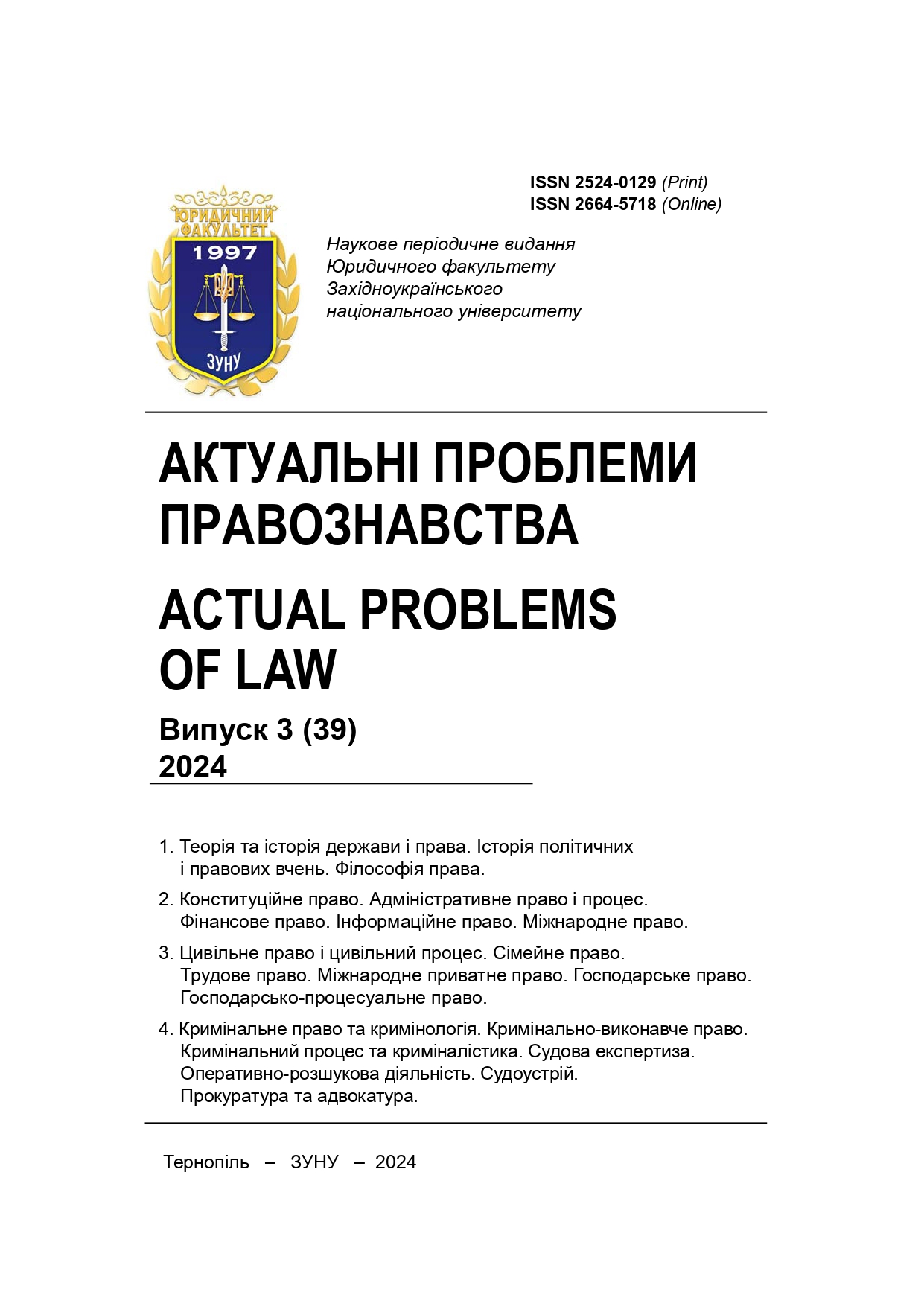Ethical and legal aspects of artificial intelligence systems implementation: balancing technological progress and fundamental human rights in the context of society’s digital transformation
DOI:
https://doi.org/10.35774/app2024.03.042Keywords:
artificial intelligence, human rights, protection of human rights, AI ethics, legal regulation, digital transformation, algorithmic transparency, AI accountability, data protectionAbstract
The article examines key ethical and legal challenges associated with the implementation of artificial intelligence (AI) systems in the context of rapid societal digitalization. The study analyzes fundamental human rights that require special protection in the development and use of AI technologies, particularly the right to privacy, non-discrimination, fair trial, and human dignity. The paper reviews international and national legal mechanisms for AI regulation, as well as ethical principles that should underpin the development of such systems.
Special attention is paid to the issue of ensuring transparency in algorithmic decision-making and accountability for the consequences of their application. Based on the analysis of existing practices and challenges, conceptual approaches are proposed for creating a balanced system of AI legal regulation that would promote technological progress while guaranteeing the protection of fundamental human rights. The article identifies promising directions for improving national legislation in the field of AI systems regulation, taking into account international standards and ethical norms.
Downloads
References
1. Floridi, L. (2023). The Ethics of Artificial Intelligence [The Ethics of Artificial Intelligence]. New York: Oxford University Press [in English] https://doi.org/10.1093/oso/9780198883098.001.0001
2. Friedman, B. (2023). Human Values and the Design of Computer Technology [Human Values and the Design of Computer Technology]. Cambridge: Cambridge University Press [in English]
3. Hildebrandt, M. (2023). Smart Technologies and Human Rights [Smart Technologies and Human Rights]. Oxford: Oxford University Press [in English]
4. Maidanyk, R. (2023). Shtuchnyi intelekt i prava liudyny: problemy pravovoho rehuliuvannia [Artificial Intelligence and Human Rights: Problems of Legal Regulation]. Pravo Ukrainy – Law of Ukraine, 8(2), 75-84 [in Ukrainian]
5. Martseniuk, O. (2023). Pravove rehuliuvannia shtuchnoho intelektu v Ukraini [Legal Regulation of Artificial Intelligence in Ukraine]. Pravo Ukrainy – Law of Ukraine, 5(1), 20-28 [in Ukrainian]
6. Pagallo, U. (2023). The Laws of Robots: Crimes, Contracts, and Torts [The Laws of Robots: Crimes, Contracts, and Torts]. Berlin: Springer [in English]
7. Pasquale, F. (2023). The Black Box Society: The Secret Algorithms That Control Money and Information [The Black Box Society: The Secret Algorithms That Control Money and Information]. Cambridge: Harvard University Press [in English]
8. Solove, D. (2023). Understanding Privacy in the Digital Age [Understanding Privacy in the Digital Age]. Cambridge: Harvard University Press [in English] https://doi.org/10.18574/nyu/9780814708965.001.0001
Downloads
Published
Issue
Section
License

This work is licensed under a Creative Commons Attribution-NonCommercial 4.0 International License.





